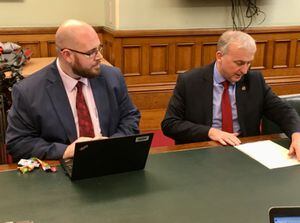Health chief says 'significant amount of work' needed before mass Covid testing
Birmingham’s director of public health has said a “significant amount of work” would be needed before mass testing can be carried out in the city.

Birmingham is one of the authorities which will be included in a new plan involving antigen lateral flow tests.
Health and social care secretary Matt Hancock has announced 10,000 test kits would be issued to Birmingham, one of 50 local authorities to be part of the scheme.
Dr Justin Varney, Birmingham City Council’s public health director told a meeting of the council’s cabinet on Tuesday he got the message from the Government “late last night [Monday]”.
More Covid-19 coverage:
He said: “This is a new form of test for Covid. It requires the same uncomfortable swab to the back of your nose or throat.
“That swab is then given to a trained member of staff who then mixes it with a liquid and introduces it into a small plastic test kit that looks a bit like a pregnancy test.
“That gives a result in 20 to 25 minutes. That technology is now being rolled out to local government.
“We are getting information through over the last couple of days about what is required to set up testing sites and how they need to be staffed.
“We yet have any information about the technology that’s needed to register people to record results and also this funding requirement of local government to stand up what are quite significant testing facilities.
“So although I welcome the lateral flow, it won’t change anything in the next couple of weeks because there’s a significant amount of work needed to step this up and move this forward.”
Dr Varney said it would not be possible to take the test at home and people would need to continue to go to testing sites. He added there would still be a risk around false positives and negatives.
Referring to the widely reported news the firm Pfizer has a 90 per cent effective vaccine, Dr Varney said: “It was good news to see that one of the trial vaccines has got through its almost final hurdle in terms of being usable and effective.
But he said: “We can see the light at the end of the tunnel but it is a good two to three miles away.
“The vaccine is going on track but I don’t expect us to see mass vaccination until late into the spring next year.”





